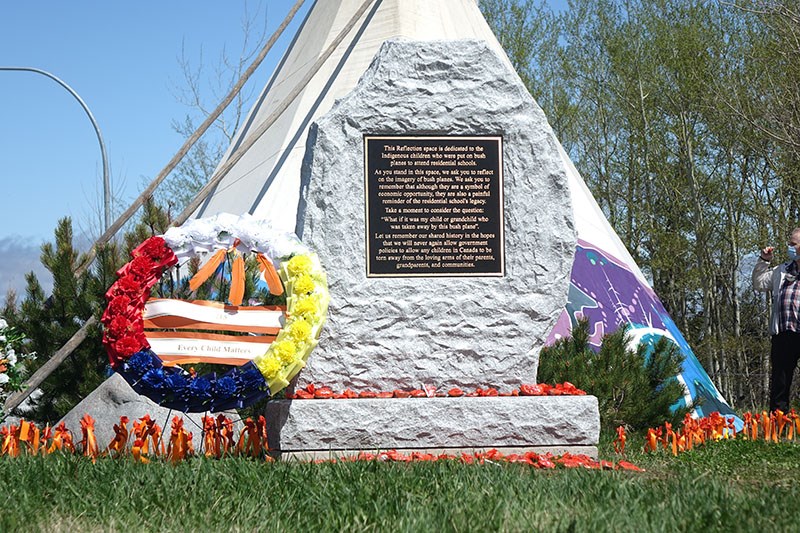A council including Indigenous organizations and all three levels of government has been formed to provide guidance on how to support Indigenous-led searches for children who died while attending residential schools, the Manitoba government announced March 23.
Participating organizations include Manitoba Keewatinowi Oikimakanak, the Assembly of Manitoba Chiefs, the Manitoba Inuit Association, the Manitoba Metis Federation and the Southern Chiefs Organization, which will co-chair the as-yet-unnamed council alongside the provincial government.
As part of the Regional Indian Residential Schools Resolution Health Support Program, Keewatin Tribal Council will also be working with the council.
“This critical work is just the latest example of how we must do all we possibly can to honour the children who attended Indian residential schools, their families and the thousands of children who never returned home,” said SCO Grand Chief Jerry Daniels. “I am pleased to see our relatives and partners, including our treaty partners, coming together to ensure that as we acknowledge the genocidal history and legacy of the residential schools, we collectively do everything we can to locate those missing children, which is such a vital component of the truth and reconciliation process.”
Five overarching principles will guide the council’s work: that the searches for missing residential school students are Indigenous-led with support from all levels of government; that search efforts include families and survivors; that families, survivors, communities and all those engaged in the work have their wellness and healing supported; that the remains of children who died at residential schools and their burial locations be protected; and that the children who died are commemorated for healing, truth-telling and education purposes.
“Indigenous leaders, governments, organizations, communities, elders, knowledge keepers and, most importantly, survivors and families must lead the way as we implement the Truth and Reconciliation Commission’s Calls to Action and locate missing children who died attending residential schools,” said Alan Lagimodiere, Manitoba’s Indigenous reconciliation and northern relations minister. “This work is a difficult but necessary part of the healing journey for Indigenous communities and the council will provide crucial support and guidance to the searches for and commemorations of the children who did not return home.”
Priorities when searches take place include making sure that they respect the cultural protocols, traditions and laws of all Indigenous peoples and that locations where children are buried are made accessible to families wanting to pay their respects to lost loved ones.
“Communicating with survivors and gathering their ideas as to how they wish to initiate the forensic and archival research to reclaim the identity of the little ones buried in unmarked graves is key to moving forward regionally,” said AMC acting grand chief Eric Redhead. “We know that searching the grounds, gathering the historical records and gathering statements across this province will be complex work that requires coordination as First Nation children were transported from the north to south, east to west in the fourteen residential schools located throughout Manitoba. Those First Nations who had residential schools on their lands or adjacent to will require meaningful and long-term support to reclaim and commemorate their loved ones in a culturally meaningful way. We want to respect the wishes of the affected families and the AMC is committed to working with the First Nations, the province and the federal government to seeing this community-led work through to completion.”
The council also includes a representative of the National Centre for Truth and Reconciliation.
“It is time for all levels of government to support First Nation families and communities,” said MKO Grand Chief Garrison Settee. “We must work to help the spirits of our children come home to rest. It is time to right the wrongs. It is time for our people to author the narrative of our history. It is our history, it is our truth, it is our children, it is our spirit, it is our healing, and it is our time to lead. For many years, our elders have told us of the unmarked graves they knew were at residential schools. We now have the ability to bring the truth to light and through technology, we can now help the spirits of our children to rest. Manitoba Keewatinowi Okimakanak will continue to honour our children following our protocols and using our ceremonies that they were denied. When directed by the First Nations, we will work to repatriate the remains of our children who are buried in unmarked graves, away from their home communities. We will work to ensure First Nations have the opportunity to memorialize their children and create commemorations in honour of our ancestors who died at residential schools.”
The Manitoba government has committed $2.5 million to support the identification, investigation, protection and commemoration of children who died at residential schools, while the federal government has provided $3.9 million so far to Manitoba Indigenous communities conducting such search efforts.
“Our government is committed to work alongside the council to support Indigenous-led, survivor-centric and culturally sensitive approaches to the difficult but essential work ahead to locate burial sites, and commemorate children who were forced to attend residential schools – as survivors, families and communities work towards healing and closure,” said federal Crown-Indigenous Relations Minister Marc Miller.
As of December 2021, six First Nation communities in Manitoba were actively searching various locations where the remains of children who died at residential schools may be using ground-penetrating radar.




